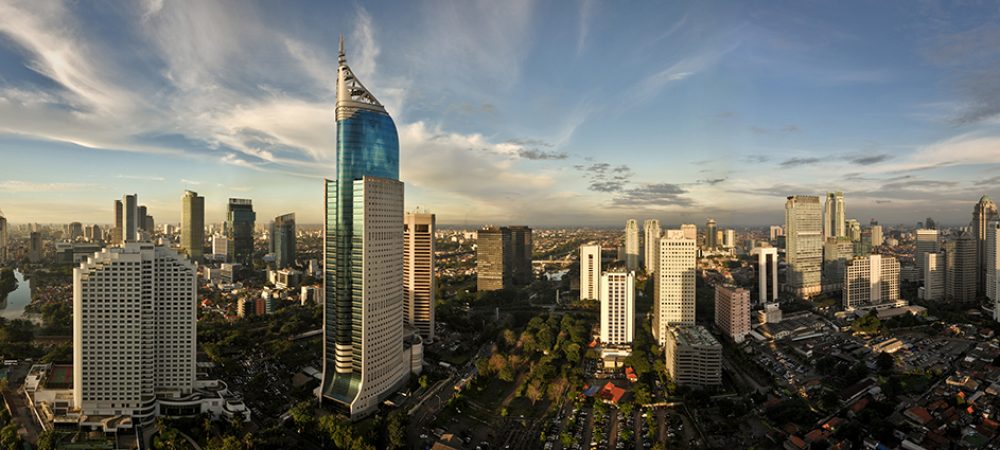As the Indonesian market adapts to new challenges, telecommunications providers must grow their digital offerings to ensure future-proofing, keep up with consumer demand and maintain users with consistent value. Intelligent CIO talks to Vikram Sinha, Director and Chief Operating Officer at Indosat Ooredoo, about how the company has set about meeting Indonesia’s needs to bring it closer to its vision of becoming the country’s leading digital telecommunications provider.

What networking challenges are businesses and CIOs facing in the ‘new normal’? How have enterprise customer needs changed with the work from home set up?
The global spread of COVID-19 has affected every organization. Indosat Ooredoo believes that in the ‘new normal’, digital technologies will play a vital role in connecting people and businesses and ensuring that daily activities can continue.
First, as more people work from home and Internet usage has surged, networks have been put under pressure with potentially negative consequences for Internet speeds and so work productivity. Anticipating a greater need for voice and data traffic, Indosat Ooredoo has worked to optimize network performance to ensure businesses can continue to enjoy fast Internet speeds and continue to operate productively during this period.
Second, new cybersecurity risks for businesses have emerged as employees access secure networks remotely, spend more time on the Internet and more communication is done online.
Finally, companies need to implement effective remote working practices, while many are also facing increasing financial pressures and trying to reduce IT and telecommunications costs. This has led to growing demand for technology services that are cost-effective, reliable, secure and scalable and this has led to a shift from on-site hardware platforms to cloud-based solutions.
To what extent can cloud technology help address these challenges/needs?
Cloud technology and solutions enable private and public clients to achieve cost optimization. For example, a ‘pay as you go’ model helps companies avoid large capital investments. Cloud technology also enhances integration and co-ordination within an organization, which should result in greater efficiency across business operations.
The impact of COVID-19 has increased the risk of doing business. The flexibility of cloud solutions allows enterprise customers to run new business initiatives in the cloud, while maintaining their spending. Noting this, we have also identified an increased demand for hybrid cloud solutions through co-creation opportunities with our customers.
Hybrid cloud is an ICT infrastructure solution that can optimize efficiency for data management and processing. For example, use of hybrid cloud to centralize data processing at the city government level can make data analysis and the implementation of Artificial Intelligence (AI), needed for accelerated decision-making, significantly easier. A hybrid cloud solution can be easily integrated with existing data centers.
This year, we have established partnerships with Alibaba Cloud, Google Cloud Platform (GCP) and Amazon Web Services (AWS) to make Hybrid Cloud solutions available to our customers. We believe Indosat Ooredoo’s strengths, combined with our partners’, can bring the right IoT, Big Data and cybersecurity solutions to tackle any business challenges that might emerge in the future.
Tell us about your partnership with NetFoundry – how is your Network- As-a-Service (NaaS) solution helping companies?
NetFoundry enables zero trust-based secure and reliable connectivity between clients and various apps, hosted across a distributed environment in the cloud. By partnering with NetFoundry we can provide the seamless communication that modern workers need, and ensure that Indosat Ooredoo’s networks are quicker, safer and easier to operate than ever before.
Additionally, this partnership has made Indosat Ooredoo Indonesia’s leader in cloud transformation through Network-As-a-Service (NaaS) and our IoT and SaaS applications. With the launch of NaaS services, our first priority was to provide ‘remote worker enablement’ through a next-generation solution for the enterprise and SME market that replaces old VPN technology.
Do you see cloud technology as a long-term solution beyond the pandemic?
Yes, cloud technology has long-term applications. The current networking environment is resource-intensive, inefficient and prone to security breaches. In contrast, cloud technology offers networking systems that are intuitive, usable, reliable and secure.
COVID-19 has permanently shaped the way companies work and conduct business. For example, employees are demanding greater work flexibility and companies have realized the need to streamline processes and become more efficient. Cloud technology addresses these challenges – it drives efficiency by decreasing costs for data management and processing, expanding data analysis by integrating data centers under one platform. Additionally, cloud technology streamlines decision-making while maintaining accuracy.
Governments also need to manage increasingly complex and data-rich environments within budgetary constraints. Cloud solutions that can accelerate decision-making through integration and innovation will ultimately empower policymakers and administration officials, providing much-needed flexibility during the on-going global crisis.
What other solutions and initiatives have you introduced amid the pandemic?
When COVID-19 hit our shores, Indonesians were strongly advised to stay home. Indosat Ooredoo spotted the opportunity to introduce Voice over LTE (VoLTE) services in more than 30 cities across the nation, enabling better connectivity through simultaneous calls and Internet usage, and reducing the distance between loved ones through ‘HD voice’ quality.
Additionally, we expanded our digital capabilities by launching Indosat Ooredoo’s Digital Assistant (INDIRA) and an official WhatsApp service for IM3 Ooredoo customers. Both channels allow customers to perform simple tasks from home – for example, research product information, top up credit, pay bills, buy packages and easily submit enquiries. These services have complemented Indosat Ooredoo’s other self-service offerings, while also encouraging customers to limit physical interactions where possible.
Indosat Ooredoo is always seeking to innovate and provide the best digital experience. We hope that our solutions will continue to bring convenience and enjoyment to our customers, especially amid a pandemic.
What is the role of strategic partnerships in helping Indosat Ooredoo bring innovative solutions to the Indonesian market?
Indosat Ooredoo has entered several strategic partnerships over the last few years to meet market needs and bring us closer to our vision of becoming Indonesia’s leading digital telecommunications provider.
In March 2020, we collaborated with the Telecom Infra Project (TIP) and the GSMA to deploy OpenRAN technology in Indonesia to encourage cost effectiveness and accelerate digital equity. We hope that this on-going partnership will allow us to build a local ecosystem that can further sustain the development and deployment of innovative and cost-effective solutions for Indonesian operators, as well as contribute towards driving the socio-economic development for Indonesia.
Our partnership with NetFoundry has also been integral in bringing innovation to the Indonesian market. As leaders in cloud-native networking, NetFoundry expands the capabilities of Indosat Ooredoo’s IoT, SaaS and Network- As-a-Service (Naas) offerings. Further, this partnership allows us to tap on NetFoundry’s links to AWS, Google and Microsoft Azure, progressing the way in which users can access and operate within the cloud. During COVID-19, these developments have helped many customers set up remote working through a reliable and secure network.
What do you see next for the Indonesian market?
Indonesia is one of the largest and fastest-developing emerging markets in the world and is Southeast Asia’s biggest digital economy. Due to the geographical spread of its population there is a growing demand for reliable and affordable Internet connectivity in urban and rural areas, especially as data usage surpasses traditional calling and texting services. Additionally, the rise in remote working due to COVID-19 has accelerated demand for greater online functionality.
As the Indonesian market adapts to new challenges, telecommunications providers must grow their digital offerings to ensure future-proofing, keep up with consumer demand and maintain users with lifetime value. New technologies such as 5G may also provide new growth opportunities for wholesale and consumer services.
Indosat Ooredoo’s plans for 2021?
Despite the on-going global economic slowdown and intense competition, we are pleased to have recorded solid financial performance in the third quarter of 2020 with +3.0% revenue growth quarter on quarter. In the same period, we also rolled out 1,929 new sites and gained 3.18 million customers, setting the company up well for our next growth phase.
Looking ahead to 2021, we will continue to simplify our product offerings, customer journeys and network experience, and hope to build on our ambition to become Indonesia’s leading digital telecommunications provider.


